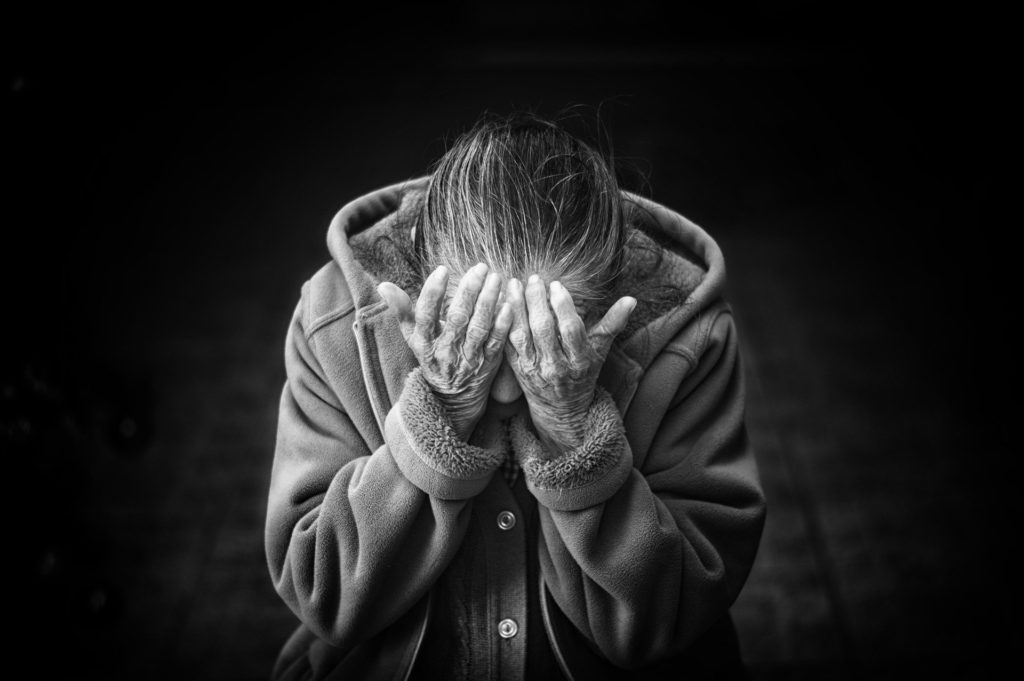Five things my mother never told me about Living with Fibromyalgia:-Part 1
I called my mom and told her the news. I was diagnosed with Fibromyalgia. Before that I was chronicling my journey with her about all my ailments and Dr. visits and how all the tests were negative, meaning I was fine.
She said casually, Oh, I was told I have that too! I felt relief because I had someone to share this journey with. She was diagnosed a few years before me but she never complained about her ailments.
I always believed that she didn’t because each one had an explanation and maybe it was just something she never completely healed from and now had to live with it. Here I have listed five things my other never told me about Fibromyalgia because well…she didn’t know!
1. Someone in your family may have it
Preliminary research suggest that Fibromyalgia may have some sort of genetic predisposition in sufferers.
It could be that most sufferers have first degree relatives such as your mom, dad or your siblings that suffer from Fibromyalgia themselves or have some sort of chronic pain accompanied by conditions such as irritable bowel syndrome (IBS), temporomandibular joint dysfunction (TMJ) chronic depressive disorders among others [1].
I remember as a kid my father had what we call in the Caribbean “bad belly”, every time he spent some time away from home setting up new offices around the country he came back and asked us to run to the shop and bring him a “hot sprite.” He swore that drinking room temperature sprite would cure his ailments and I didn’t think so…. I see the logic in that now.
My father would lay around for a few hours to half a day and accept any remedies to cure his ailments. It was predictable and frequent.
Our home was never out of the fizzy stuff, the pink stuff milk of magnesia, the chalky pills or Loperamide. I believed that I inherited this “bad belly” from my father.
2. You can start showing symptoms in your early years
Juvenile Fibromyalgia is a thing. It has been reported that children as young as 13 years old develop symptoms of fatigue, widespread pain, and unstable moods [2].
Some young adults report that they are plagued with costochondritis and widespread pain in my muscles and joints. Research also shows that there may be some genetic implications or anomalies to the way the body processes pain.
While Fibromyalgia may not be inherited, the mutations to the genes that control pain perception are.
My mother told me that as a baby I was allergic to everything; I was hyper-sensitive. I now think that I was born predisposed to Fibromyalgia. At around nine years old I was diagnosed with having rheumatic fever.
I was given prednisone and penicillin shots as well as tablets for umpteen months. Around 12 years old I was checked out again, I was fine. The Dr. brought out his anatomy book and told me that my muscles were hurting and it wasn’t my heart.
I was relieved but skeptical, the body pain and mood and general low desire for physical activity was left unexplained.
On a trip to the USA a year later, I was checked again and was told once again that I was fine. My eyes filled with water and I almost started to cry.
I keep hearing you’re fine, you’re fine but I felt like crap. I was very sure I was going to die of a mysterious illness.
At 15 I had an accident at school and I was laid out for my second and third year. I was extremely exhausted and just slept most of the time and I had the most debilitating headache.
Now I know that the physical trauma I experienced aggravated my condition and I was in a yearlong flare up.
I felt a lot better when my mother gave me offal (full of CoQ 10) and ate my grandmother’s bone soup.
The neurologist however convinced everyone that I was having mal petit seizures and during that time I was taking up to 18 and ½ pills a day! Later I found out that some of these pills actually caused petit mal seizures.
I now know I didn’t need any of those medications and in some way it may have damaged me.
3. You may suffer with years long depression and persistent saddened disposition
It is believed that once a person is predisposed to fibromyalgia it is often precipitated by stress caused by the environment or stresses caused by illnesses.
It’s often found that individuals that suffer from depression develop fibromyalgia later on. Studies have reported on different variants of the gene that codes for a serotonin transporter protein, 5HTT [3].
Serotonin is the hormone responsible for well being and is found in the gut, brain and blood [4].
This is why many naturopaths claim that in order to heal Fibromyalgia we must first heal the gut.

I can’t say that I was either sad or happy all of my life but I have noticed that family members that were later diagnosed with Fibromyalgia were either chronically depressed before or they just had a sad disposition.
When I first started to research about my condition I came across so many articles that suggested I heal my gut first. I did and I can’t say that it did much to help my feeling of well being because I was also seeing a therapist and changed my diet and started taking supplements, including nootropics (at the same time).
But healing your gut does solve a world of problems, one of which is better sleep; it’s been said that a full night’s rest reduces depressive moods.
4. Pregnancy makes it worse
During pregnancy some women find that Fibromyalgia symptoms are worsened and other find that it is reduced. Research show that a significant number of women claimed that there was exacerbation of symptoms such as irritable bowel, morning stiffness and fatigue, back pain and irritability [5].
Also, some women revealed that their Fibromyalgia symptoms started or got worse within six months after their baby was born [6].
I thought my pregnancy was text book normal. Morning sickness for the first 4 months then I felt great in my second trimester. Last three months I had back pain and that was all. I had a quick and easy delivery and I was good to go, right? WRONG!
Six months in I started to feel run down-beaten-up-tired. I thought it was because I was having a stressful time at school being a PhD student and all, “in between labs”, “switching fields” and taking and failing the Qualifying Exams all at the same time.
I thought that this may be “baby blues” or “new-baby-tired” but I saw people around me having babies and bouncing back like it was a piece of cake. I was struggling. My house was a mess, dishes piled up, laundry piled up and dust bunnies piled up.
My school work suffered, my relationship with myself and others suffered and I was just feeling horrible. The depression was overwhelming and I was told “you need help” but never where to get it.
My symptoms included irritable bowels, brain fog, like I was in my body but some other thing was in control, depressive moods, crying bouts, extreme fatigue, TMJ, joint stiffness, rhinitis, headaches, recurring infections in eyes, throat and mouth, extremely irritable and just generally looking run down and beaten up, down and all around.
Then came the allodynia! On top of all this I began itching all over. There was never a time I felt okay. I was so sad about that because here I have this beautiful baby and I felt that I couldn’t enjoy her as much as I wanted to because I was feeling so awful.
I thought to myself, this can’t be what post-partum recovery is like. There must be something more. I looked in the mirror and no longer recognized myself.
I cried over that too. I spent many nights bawling my eyes out begging the universe to please make it go away.
5. Exponentially intensifies with age
Up until recent years Fibromyalgia in recent years have not been studied in older patients. Newest research had found that patients between the ages of 55 to 95 show an 800% increase in Fibromyalgia symptoms over time. They were also found to be taking the wrong combination of prescription medicine and other treatment [7].
Scientist say that fibromyalgia isn’t life threatening. I think years and years of pain, minimal exercise and poor sleep wear and tear down the body to the point where degenerative diseases begin to manifest.
I remember when my grandmother came to our home with a chest x-ray telling my mom she had an enlarged heart. My mother wasn’t alarmed so I decided not to be worried either.
Two decades later my grandmother battled hypertension and passed away after a stroke. With my present condition, my mother’s and my Grandmother’s previous condition (along with a few extended family members) I began to put the pieces of the puzzle together.
What if my grandmother had Fibromyalgia and thought that the aches and pains she never complained about were just part of getting old?
In my 20s and I was more in control of my diet and I was taking a host of supplements and sleeping as much as I wanted to whenever I wanted to.
I studied at night when I had insomnia and slept in between classes. I couldn’t tell that I wasn’t ok. Except for constant irritable bowel I was normal…ish? That time of the month was brutal at least the first two days before and the first day of. I got tired easily and was very upset if someone woke me from my sleep. I remember an entire tree was cut down right outside my window and I did not hear a thing!
I was grumpy, now I’ll admit that. In my mid 20s I developed a crippling pain in my left side. Of course after countless imaging, tests and examination, I was fine. After my baby was born, in my 30s, it all exploded into full blown body breakdown.
The first day my life changed I was at home lying on the sofa waiting for my first bottles of supplements to arrive. I laid there, I had never felt so sick. I was almost near bed ridden.
I can only describe it as an awful slimy feeling inside, like when you have a fever. Except, I didn’t have a fever. After that day I began a road of improvement. I get down sometimes but I always use that day as a reference to never go back there. It was the first day of the last day.
I am now taking supplements, (CoQ 10, Acetyl-L-Carnitine, Magnesium Glycinate and D-ribose), managing my stress levels and controlling my diet. I have completed 3 years of psychotherapy and cognitive behavioral therapy and I am on the road to recovery.
I enjoy spending time with my family. And yes, the sink is clear, laundry is washed, dried and folded and oh! dust bunnies are gone. That baby is now a kindergartener and I am enjoying every minute of it.
References:
1. Fibromyalgia – Genetics Home Reference – Nih
2. De Sanctis, V., Abbasciano, V., Soliman, A. T., Soliman, N., Di Maio, S., Fiscina, B., & Kattamis, C. (2019). The juvenile fibromyalgia syndrome (JFMS): a poorly defined disorder. Acta bio-medica : Atenei Parmensis, 90(1), 134–148. https://doi.org/10.23750/abm.v90i1.8141
3. Gracely, R. H., Ceko, M., & Bushnell, M. C. (2012). Fibromyalgia and depression. Pain research and treatment, 2012, 486590. https://doi.org/10.1155/2012/486590
4. Berger, M., Gray, J. A., & Roth, B. L. (2009). The expanded biology of serotonin. Annual review of medicine, 60, 355–366. https://doi.org/10.1146/annurev.med.60.042307.110802
5. Genç, H., Atasever, M., Duyur Çakit, B., Seval, M., & Koç, A. (2017). The Effects of Fibromyalgia Syndrome on Physical Function and Psychological Status of Pregnant Females. Archives of rheumatology, 32(2), 129–140. https://doi.org/10.5606/ArchRheumatol.2017.6028
6. Ostensen, M., Rugelsjøen, A., & Wigers, S. H. (1997). The effect of reproductive events and alterations of sex hormone levels on the symptoms of fibromyalgia. Scandinavian journal of rheumatology, 26(5), 355–360. https://doi.org/10.3109/03009749709065698
7. Jacobson, S. A., Simpson, R. G., Lubahn, C., Hu, C., Belden, C. M., Davis, K. J., Nicholson, L. R., Long, K. E., Osredkar, T., & Lorton, D. (2015). Characterization of fibromyalgia symptoms in patients 55-95 years old: a longitudinal study showing symptom persistence with suboptimal treatment. Aging clinical and experimental research, 27(1), 75–82. https://doi.org/10.1007/s40520-014-0238-7





